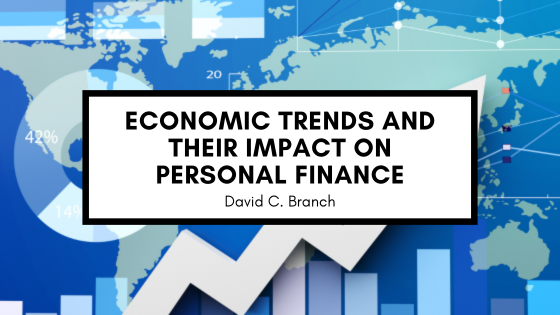Economic trends wield a pivotal influence in molding the financial well-being of individuals. Beyond mere statistical figures, these trends resonate in the daily lives of people, shaping the landscape of investment opportunities and defining the purchasing power of consumers. This article delves into the intricate web of these economic dynamics, unraveling the nuanced ways in which they exert a profound impact on the decisions individuals make concerning their personal finances.
At the core of this exploration is the recognition that economic trends extend far beyond mere indicators—they are the driving forces behind the ebb and flow of financial markets, influencing investment climates and reshaping financial landscapes. The availability of investment opportunities hinges on the trajectory of economic trends, determining where capital is most effectively deployed. Simultaneously, the purchasing power of consumers, a linchpin of individual financial health, fluctuates in tandem with broader economic shifts, dictating spending habits and financial priorities.
Understanding these complex interconnections is crucial for anyone seeking to navigate the intricate terrain of personal finance. By unraveling the intricacies of economic trends, individuals can make informed decisions that resonate with the prevailing financial climate, ensuring a more resilient and adaptive approach to managing their financial portfolios. In the pages that follow, we will dissect key economic trends, offering insights into their multifaceted impacts on personal finance and providing a roadmap for strategic decision-making in an ever-evolving economic landscape.
- Interest Rates: Fluctuations in interest rates can significantly impact personal finances. When interest rates are low, borrowing becomes cheaper, allowing individuals to take advantage of lower mortgage rates or access to affordable loans. On the other hand, high interest rates can increase the cost of borrowing, making it harder for individuals to invest or make large purchases.
- Inflation: Inflation is the rate at which prices for goods and services rise over time. A high inflation rate erodes the value of money, reducing purchasing power. This can make it challenging for individuals to maintain their standard of living and save for the future. Understanding inflation and its impact on personal finances is essential for making informed investment decisions.
- Stock Market Performance: The performance of the stock market can have a profound impact on personal finances, especially for those who have investments in stocks or mutual funds. A booming stock market can lead to significant gains and increased wealth, while a decline can result in financial losses. Staying informed and having a solid understanding of investment strategies can help individuals navigate the volatility of the stock market.
- Job Market: The health of the job market directly affects personal finances. A strong job market typically means more job opportunities, higher wages, and increased stability. However, during economic downturns or recessions, job losses can be widespread, making it difficult for individuals to maintain their financial well-being. Being prepared with emergency savings and developing transferable skills can help mitigate the impact of a weak job market.
- Technological Advancements: Technological advancements have revolutionized many industries, increasing efficiency and driving economic growth. However, they have also led to job automation and the displacement of certain professions. Individuals must adapt to this changing landscape by acquiring new skills and staying ahead of technological advancements to remain employable and financially secure.
- Globalisation: The increasing interconnectedness of economies through globalization has both positive and negative impacts on personal finances. On one hand, globalization has opened up new markets, creating opportunities for businesses and investors. On the other hand, it has also intensified competition and led to job outsourcing, which can negatively impact job security. Understanding the implications of globalization can help individuals make informed decisions about their careers and investments.
In conclusion, economic trends have a significant impact on personal finance decisions. Being aware of interest rates, inflation, stock market performance, the job market, technological advancements, and globalization is crucial for navigating the ever-changing financial landscape. Staying informed and adapting to these trends can help individuals protect their financial well-being and capitalize on investment opportunities. Remember, having a long-term perspective and seeking advice from professionals can contribute to making sound financial decisions in any economic climate.

